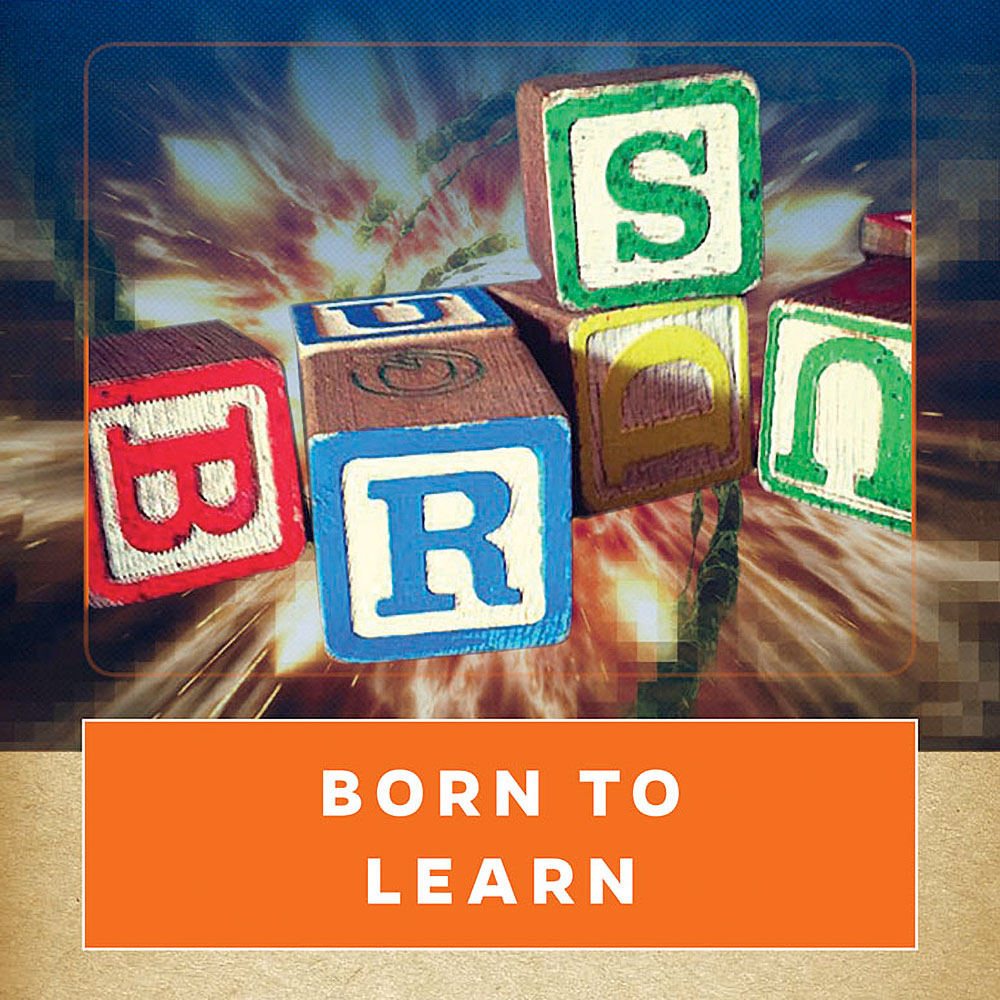New from GATORBYTES: ‘Born to Learn: Innovations in Early Childhood Studies’

The human brain’s most important developmental stage occurs before the age five. These often-overlooked years form the foundation for future physical, emotional, cognitive, and social capabilities. At the University of Florida’s Anita Zucker Center for Excellence in Early Childhood Studies, researchers are spearheading initiatives to support children’s health, development, learning and well-being.

“Born to Learn,” written by Lauren Webb, gives readers an inside look at the bright minds housed in the Center and their collaborative pursuits to provide children with the best possible start in life. These researchers are innovating the field of early childhood studies in the United States and abroad.
Inside the book, find out how researchers in Zambia are striving to deliver quality education to rural children with disabilities. Read about challenges parents face when trying to find good preschools in low-income areas, and how the Center looks for ways to overcome them. See the CHILD Center (a model demonstration site in Gainesville, Florida) where teachers, researchers and policymakers study and learn best practices.
Through the tireless efforts of its staff, the Anita Zucker Center enriches the lives of children and their families around the world to create a brighter future for all.
The stories chronicled in GATORBYTES cover all colleges and units across the UF campus. They detail the far-reaching impact of UF’s research, technologies and innovations—and the UF faculty members dedicated to them.
Gatorbytes describe how UF is continuing to build on its strengths and extend the reach of its efforts so that it can help even more people in even more places.
The following is an excerpt from “Born to Learn”:
In 1996 Zambia made a national commitment to provide quality education to children with disabilities. Those with mild disabilities would be given special education services in regular schools while those with severe disabilities would either attend special units attached to the regular school or a school with specialist teachers.
Today, despite the country’s best efforts, only 6 percent of children between the ages of three and five are enrolled in preschools due to a lack of services such as teachers and supplies. One important factor contributing to the problem is that early childcare, development, and education are not the responsibility of any one governmental department in the country.
This gap in services along with Zambia’s ongoing commitment to children with disabilities makes it an optimal training ground for the WHO’s Parent Skills Training Programme for Caregivers of Children with Developmental Disorders. This program was created to provide adults the necessary tools needed to help and understand children with disabilities.
Dr. Brian Reichow from the Anita Zucker Center has been collaborating with WHO on this project and many others. He has gone to Zambia to personally oversee the implementation of the project in the village of Kalomo, a small town in the southern part of the country.
Before joining the Center as an associate professor, Dr. Brian Reichow graduated from Vanderbilt with both his masters and PhD in Early Childhood Special Education. He then accepted a postdoctoral fellowship position at Yale’s Child Study Center. He is currently working with the WHO to develop guidelines and training to assist with identifying, managing, and treating children with developmental disabilities in low and middle-income countries.
“The Parent Skills Training Programme I have been developing with the WHO continues to expand. Recently, we began training across eight provinces in China,” says Dr. Reichow. “And early next year we are launching pilot trials in other countries across Africa and Asia.”
Dr. Reichow has been working with stakeholders to make sure that teaching and training in Zambia is culturally relevant. Tentatively, the trainings would involve eight group sessions and three home visits with the families. The program’s content is dispersed through the group sessions, with targeted coaching of parent-child interactions taking place during the home visits.
“If we can show that [the implementation of the WHO Parent Skills Training Programme] has a positive impact on children and families, the WHO will likely publish the training package on their website as an open-source programme,” Dr. Reichow says. This is huge for families with limited means, as it the program would be available for free to anyone with internet access.
Programs such as Dr. Reichow’s will ensure children living in low-income areas around the globe can grow and learn in ways similar to their peers in more developed countries. “Our goal is to create a sustainable program in areas that don’t have access to specialist trainers,” he explains. “This work is at the core of the Anita Zucker Center’s mission: to help young children and their families, especially those with vulnerabilities — no matter where they live.
To read more of the story, visit the University of Florida Press website http://upress.ufl.edu/book.asp?id=9781942852155 and download the complete text. A paperback is also available for $5.95.